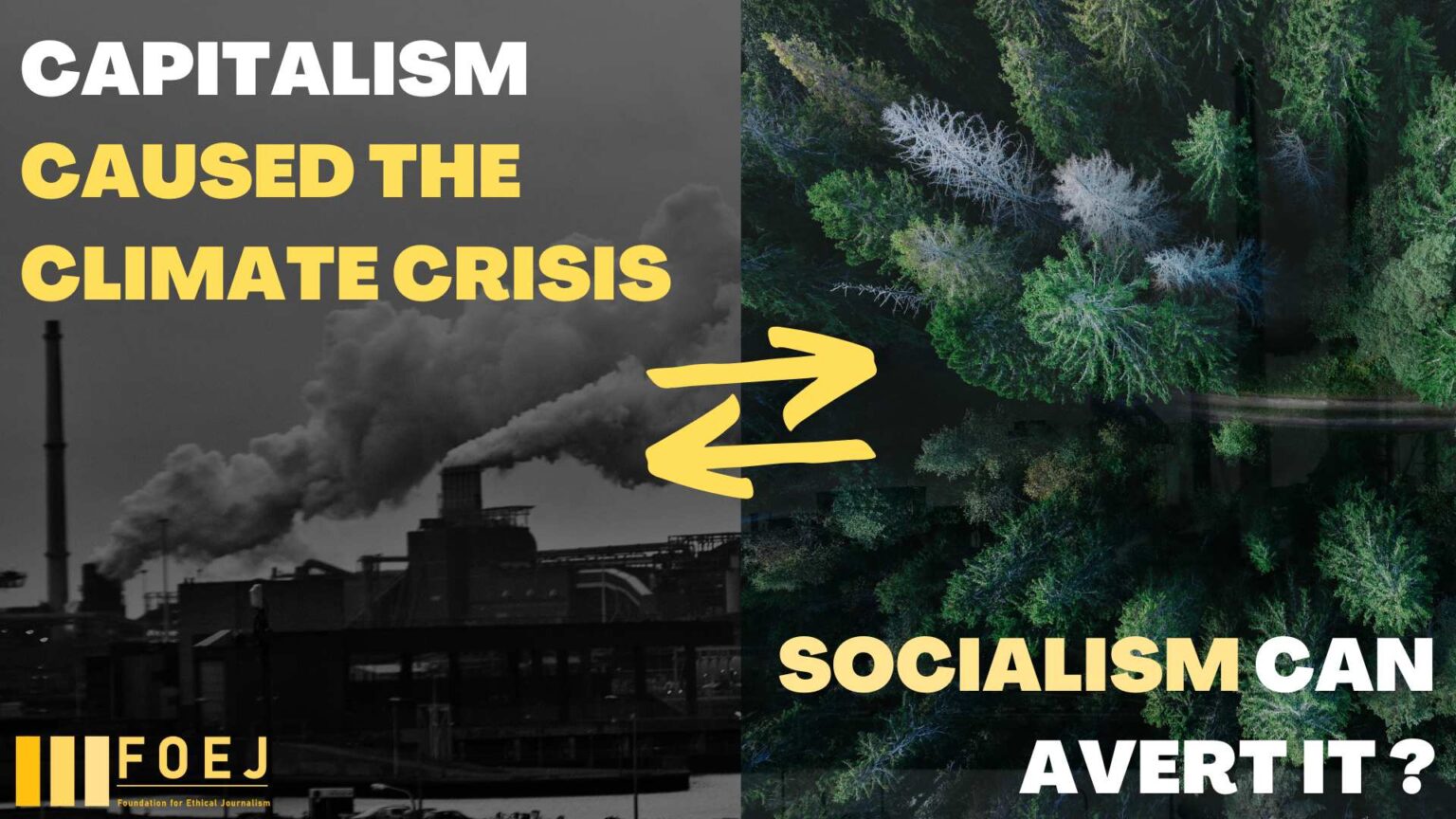Starting from this week on 7th November, most UN member states will gather in Sharm el-Sheikh, an Egyptian city, for the annual United Nations Climate Change Conference (CCC).
This will be the 27th Conference of the Parties to the Assessment of the United Nations Framework Convention on Climate Change. The abbreviation for this conference is COP27.
As we know, in 1992, the International Environment Treaty was signed in Rio de Janeiro and the agreements of this treaty were later incorporated into the Kyoto Protocol of 2005 and the Paris Agreement of 2015.
But in most public debates on climate disaster, there is hardly any mention of the 1992 Rio Convention and the International Environment Agreement which seeks “the greater comprehensive cooperation of all countries due to the global nature of climate change and their participation in an effective and appropriate manner in accordance with the common but with varying responsibilities and respective capabilities of different countries and their social and economic conditions.”

Photo (Financial times)
Entering a phrase like ‘common but varying responsibilities’ means affirming the fact that the problem of climate change is the same for all countries and that no one is safe from its harmful effects, but the responsibilities are not the same. “Countries that have benefited from centuries of colonialism and carbon fuels have a great responsibility in moving the world towards a decarbonised energy system“.
Now, there is no need to say much about how big the climate crisis is, how the possibility of the extinction of many species is simultaneously looming over our heads and what the biggest obstacles are in our path. The CASE IS CLEAR –
1. Right-wing forces, who do not even believe that climate change is actually happening.
2. The segment of the energy industry that wants to continue using carbon based fuels for their own benefit.
3. Western countries, which refuse to acknowledge that they are primarily responsible for the problem and therefore must pay off the climate debt.
They also do not believe that they should financially help the developing countries, whose wealth they are constantly looting, to change the sources of energy. Western countries have exceptionally benefited from both colonialism and carbon fuels to achieve their level of development. Data from the Global Carbon Project, led by the US Department of Energy’s now defunct Carbon Dioxide Information Analysis Center, show that the United States has been the largest emitter of carbon dioxide (CO2) since 1750.

Photo (USA Today)
The United States alone emits more CO2 than the entire European Union, twice as much as China and eight times as much as India. The main carbon emitters were all colonial powers. That is, the US, Europe, Canada and Australia, where only one tenth of the global population lives, are responsible for more than half of the total global emissions.
Not only have these countries released the most carbon into the atmosphere since the 18th century, but they still emit far more carbon than their share of the global carbon budget.
“Carbon-driven capitalism, enriched by wealth stolen through colonialism, has enabled the countries in Europe and North America to raise the standard of living of their populations and achieve their relatively advanced levels of development.“
Globally, the debate about addressing the climate crisis revolves around various forms of the Green New Deal. Such as the European Green Deal, the North American Green New Deal and the Global Green New Deal. Various countries, international organizations and environmental protection movements promote such agreements. But the only failure for this is that the reality of climate imperialism is not being accepted.

Photo (Vox)
COP16, held in 2010, aimed to raise Green Climate Fund to help developing countries accelerate the process of carbon-driven social development. But the required resources were not put in the fund.
Because the concept of ‘Green Economy’, ‘Green Agreement’ Green Fund and blaw blaw blaw Green was never intended to make it green but to use the idea of environmentalism to revive capitalism.
To better understand and strengthen this discussion, Tricontinental: The Argentine Office of the Institute for Social Research, with the aim of considering individual green agreements and the possibilities of a real project to avert climate catastrophe invited leading eco-socialist scholars Jose Céonne (Argentina), Thea Riofrancos (United States), and Sabrina Fernandes (Brazil)for a dialogue. Their discussion is available as Notebook No. 3 (August, 2022), ‘The Socio Environmental Crisis in Times of the Pandemic: Discussing a Green New Deal ‘.
These three scholars argue that capitalism cannot solve the climate crisis, because capitalism is the main cause of this crisis. The world’s hundred largest corporations are responsible for 71% of the total emissions of global industrial greenhouse gasses (mainly carbon dioxide and methane). These corporations, led by the carbon energy industry, are unprepared to accelerate the energy transition.
Whereas they have the technical capability to produce eighteen times the global electricity demand using only wind power. But a social renewable energy project, for example, would not benefit fossil fuel companies much.
And the reason for the interest of some capitalist firms in the ‘New Green Agreement’ is that the capitalists of these corporations that pollute the world only want to seize the public money from these agreements in order to further expand their private monopolies.
Ríofrancos notes in the Notebook No.3, “Green Capitalism” means addressing the features of capitalism – such as global warming, mass extinction of species, destruction of ecosystems etc. But without changing the model of accumulation and consumption, (the model which is the real cause of the crisis) is like the idea of changing everything without changing anything.
Fernandes says changing the system is the only way out, ‘but today’s political conditions are not conducive to it’. The right is strong in many countries, and climate science denials continue. As a result, they provide the following remedies to the world –
1. Degrowth of Western countries:
Despite having less than 5% of the world’s population, The United States consumes a third of the world’s paper, a quarter of the world’s oil, nearly a quarter of the world’s coal, and a quarter of the world’s aluminum. According to the Sierra Club, per capita consumption in the United States of “energy, metals, minerals, forest products, seafood, grains, meat, and even fresh water dwarfs that of people residing in the developing world.” Western countries must reduce their overall consumption, focusing on the “unnecessary and damaging ones, such as the fossil fuel and arms industries, the production of McMansions and private jets, the manner of industrial beef production, and the entire business philosophy of planned obsolescence.
2. Socialise the key sector of energy generation
Climate scientists suggest to put an end to fossil fuel industry’s subsidies and to establish a public energy sector based on a decarbonized energy system.
3. Fund the Global Climate Action Agenda
They further suggest to ensure that Western countries fulfil their historic responsibilities in supporting the Green Climate Fund. This fund must be utilized to finance the just transition particularly in the Global South.
4. Enhance the Public Sector
In addition, they propose to build more infrastructure for social rather than private consumption, such as more high-speed rail and electric buses, to decrease the use of private cars. The issue here is not entirely whether to exploit the resources but whether they can be extracted for social and national development and not merely for the accumulation of capital. The public sector has the potential to foster a culture of “buen vivir,” or “living well,” by eradicating barriers such as hunger, poverty, lack of education, and poor health.
Two billion people lack access to safe drinking water, and half of the world’s population lacks access to appropriate health care. Their social growth must be ensured, but it must be built on a long-term, socialist foundation as there can be no universal climate policy. Those who consume the world’s resources must cut back on their consumption.









